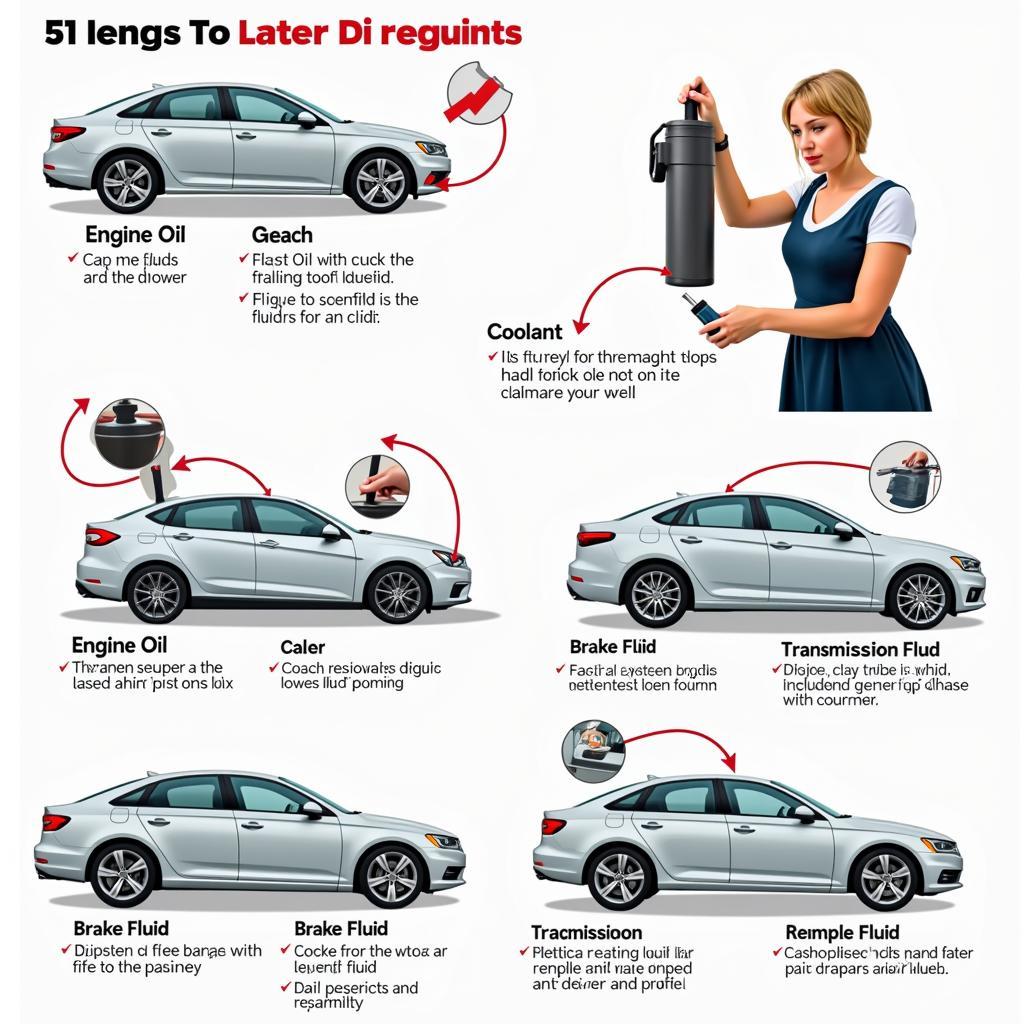Can Transmission Problems Cause Car Not To Start? It’s a common question, and the answer might surprise you. While a faulty transmission won’t directly prevent the engine from cranking, certain transmission issues can indirectly contribute to starting problems. Let’s explore the connection between your transmission and your car’s ability to start.
How Transmission Issues Can Indirectly Affect Starting
While the transmission and the starter motor are separate systems, they can interact in ways that affect starting. Here are some common scenarios:
- Neutral Safety Switch Malfunction: The neutral safety switch prevents the car from starting unless the transmission is in Park or Neutral. If this switch is faulty, the car may not start even if the gear selector is in the correct position. This is a common problem and can be easily diagnosed by a mechanic.
- Wiring Problems: Electrical wiring connecting the transmission to the starter circuit can become damaged or corroded. This can disrupt the flow of power to the starter, preventing it from engaging.
- Low Transmission Fluid: While not directly a starting issue, extremely low transmission fluid can trigger warning lights and even put the car into a “limp mode” that restricts engine performance and might feel like a starting problem.
- Faulty Transmission Control Module (TCM): In modern cars with electronic transmissions, a faulty TCM can communicate incorrect information to the engine control unit (ECU), potentially affecting starting. Though rare, this can cause the car not to start.
Can a Bad Transmission Cause a Car to Stall?
While a bad transmission generally won’t prevent your car from starting, it can cause stalling, especially while driving. A failing torque converter, slipping gears, or other internal transmission problems can interrupt power delivery to the wheels, leading to stalling. This is different from a starting problem, but equally disruptive.
Diagnosing Transmission-Related Starting Problems
If you suspect a transmission issue is affecting your car’s ability to start, here are some steps you can take:
- Check the Gear Selector: Make sure your car is in Park or Neutral. Try jiggling the gear selector slightly to see if it makes a difference.
- Inspect the Transmission Fluid: Check the transmission fluid level and condition. Low or dirty fluid can indicate underlying problems.
- Listen for Clicking Sounds: When you turn the key, listen for any clicking sounds coming from the starter motor. This can indicate a faulty starter or a problem with the neutral safety switch.
- Check Warning Lights: Look for any warning lights related to the transmission or check engine light. These lights can provide valuable clues about the problem.
When to Seek Professional Help
If you’ve tried these basic troubleshooting steps and your car still won’t start, it’s time to call a qualified mechanic. They have the tools and expertise to diagnose and repair complex transmission problems.
“A seemingly simple starting problem can sometimes have a complex root cause,” says John Miller, a certified automotive technician with over 20 years of experience. “Don’t hesitate to seek professional help if you’re unsure about the issue.”
Can a Car Start With a Bad Torque Converter?
Yes, a car can typically start with a bad torque converter, as the torque converter’s primary function is to transfer engine power to the transmission during driving, not during starting. However, a failing torque converter can cause other issues, such as stalling, rough shifting, and reduced fuel efficiency.
Conclusion
Can transmission problems cause car not to start? While not a direct cause, transmission-related issues like a faulty neutral safety switch or wiring problems can prevent your car from starting. Understanding this connection is crucial for effective troubleshooting. Remember to check your gear selector, inspect transmission fluid, and listen for clicking sounds. If the problem persists, don’t hesitate to contact a qualified mechanic. At AutoTipPro, we are available to assist you with your automotive needs. Contact us at +1 (641) 206-8880 or visit our office at 500 N St Mary’s St, San Antonio, TX 78205, United States.
“Regular transmission maintenance is key to preventing future problems,” advises Sarah Johnson, an automotive engineer with over 15 years of experience in the industry. “Addressing minor issues early can save you from costly repairs down the road.”
FAQ
- Can a bad transmission completely prevent my car from starting? Not directly. Usually, a faulty neutral safety switch or related electrical issue is the culprit.
- What are the signs of a bad neutral safety switch? The most common sign is the car not starting even when in Park or Neutral.
- How much does it cost to replace a neutral safety switch? The cost varies depending on the make and model of your car, but it’s typically a relatively affordable repair.
- Can low transmission fluid prevent my car from starting? While it won’t prevent the engine from cranking, extremely low fluid can trigger warnings and put the car in a limp mode, mimicking a starting problem.
- How often should I check my transmission fluid? It’s recommended to check your transmission fluid every 30,000 miles or as recommended in your owner’s manual.
- What should I do if my car stalls while driving? Safely pull over to the side of the road and try to restart the car. If it doesn’t restart or stalls repeatedly, call for roadside assistance.
- Can a bad transmission damage my engine? Indirectly, yes. A failing transmission can put strain on the engine, potentially leading to further damage if not addressed.





Leave a Reply